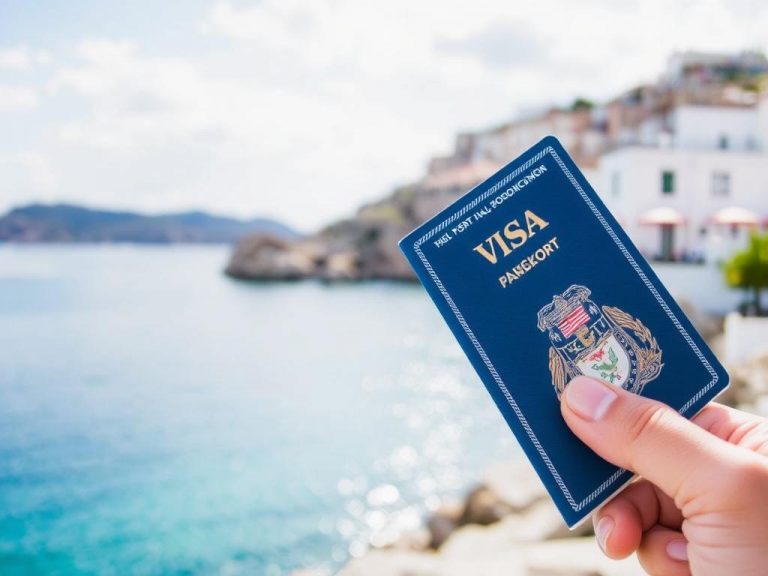Family Reunification Visas in Cyprus: Bringing Loved Ones
Family reunification in Cyprus has become an increasingly important topic as individuals and families seek to unite with their loved ones under clear and structured immigration laws. Cyprus, as a member of the European Union and a crossroads between Europe, Asia, and Africa, offers diverse opportunities for family immigration Cyprus, making it a popular destination for expatriates and immigrants. The legal framework surrounding family reunification visas in Cyprus provides pathways for spouses, dependents, and other family members to live together, contributing to the social and economic fabric of the country.
This article explores in detail the mechanisms governing family reunification in Cyprus, focusing on the requirements, processes, and obligations linked to acquiring a spouse visa Cyprus or dependent visa Cyprus. We will address how these visas fit into broader family immigration Cyprus laws, their eligibility criteria, practical steps for application, and the impact on families aiming to build their lives in Cyprus. The goal is to provide an informed, comprehensive guide to anyone seeking to navigate this complex but crucial area.
Legal Framework for Family Reunification Cyprus
Family reunification is rooted in Cyprus legislation aligned with EU directives, particularly Directive 2003/86/EC on the right to family reunification. Cyprus law facilitates the unity of families by allowing legally residing third-country nationals to sponsor their relatives. The Ministry of Interior in Cyprus oversees all procedures related to family reunification visas.
Applicants under family immigration Cyprus laws must meet specific conditions that balance the national interest with personal rights. The legal framework defines who qualifies as family members entitled to seeking reunification. Generally, this includes spouses, minor children, and in some cases, dependent adult family members.
Of paramount importance is the distinction between different categories of immigration status—temporary residents, permanent residents, applicants for international protection, and EU nationals. Each status confers varying rights to sponsor family members. For instance, EU nationals residing in Cyprus have more straightforward routes to family reunification compared to third-country nationals.
Effective family reunification policies in Cyprus strive to uphold family unity while ensuring proper integration of new family members into Cypriot society.
Eligibility Criteria under Family Immigration Cyprus Regulations
Eligibility for family reunification in Cyprus depends primarily on the status of the sponsor and the relationship to the applicant. The sponsor must be a lawful resident of Cyprus with sufficient income, accommodation, and health insurance coverage to support reunified family members without imposing a burden on the state.
Key eligibility requirements include:
- Proof of residency status in Cyprus, such as a residence permit or citizenship.
- Evidence of adequate accommodation meeting Cyprus standards.
- Stable and sufficient financial means to support family members.
- Valid health insurance that covers all applicants.
- Documented family relationships (marriage certificates, birth certificates, etc.).
Spouses applying for a spouse visa Cyprus must submit comprehensive documentation proving the legitimacy of their marriage. The authorities conduct rigorous checks to prevent fraudulent marriages, including in-person interviews and background verifications.
Understanding the Spouse Visa Cyprus
The spouse visa Cyprus is one of the most prominent instruments of family immigration Cyprus. It allows the spouse of a recognized resident to join their partner legally in Cyprus for an extended period, typically linked to the duration of the sponsor’s residence permit. This visa is critical in safeguarding the right to family life and maintaining family unity.
Application for a spouse visa Cyprus involves detailed documentation, including marriage registration, sponsor’s residence permit, proof of cohabitation intentions, and sometimes evidence of joint finances. The Cypriot authorities require applicants to demonstrate genuine marital relationships rather than informal partnerships.
The spouse visa Cyprus confers various rights upon issuance, including the ability to reside, work, and study in Cyprus. It also serves as a pathway for permanence, as holders may eventually apply for permanent residency or citizenship if they satisfy continuous residence and integration criteria.
| Feature | Details |
|---|---|
| Eligibility | Legally married spouse of a Cyprus resident or citizen |
| Duration | Linked to sponsor’s residency permit validity, renewable |
| Rights | Residence, work, education access |
| Application Processing Time | Typically 1 to 3 months |
The spouse visa Cyprus balances the need for security with the essential right to family life, enabling spouses to live, work, and thrive in the island nation.
Dependent Visa Cyprus: Extending the Circle
In addition to spouses, family immigration Cyprus policies extend to dependents. The dependent visa Cyprus is issued to minor children, school-age offspring, and, under specific circumstances, dependent adult relatives who rely financially on the sponsor residing lawfully in Cyprus. The scope of dependents recognized depends largely on the applicant’s residency status.
Minor children of sponsors enjoy almost automatic eligibility for family reunification since their welfare is a priority in immigration law. The dependent visa Cyprus ensures that children under 18 can join their parents without unnecessary delays.
Dependent adult relatives qualify only if they can prove legal or physical dependence on the sponsor, such as elderly parents living with the family or relatives with disabilities requiring care. Cyprus immigration authorities require substantial evidence for these cases to avoid misuse of dependency claims.
Obtaining a dependent visa Cyprus requires:
- Proof of relationship through birth or legal documents.
- Evidence of dependency and care needs if adult relatives.
- Accommodation and financial means criteria aligned with sponsor’s status.
- Valid health insurance for all dependents.
Dependent visa Cyprus provisions protect vulnerable family members, enabling minors and dependents to reunite with families in Cyprus while ensuring robust safeguards.
Application Process for Family Reunification Cyprus
The procedural steps to acquire family reunification visas vary depending on the category of the applicant and the sponsor’s status. Generally, the process is centralized under the Civil Registry and Migration Department, with additional input from the Ministry of Foreign Affairs for visa issuance abroad.
Applicants often start with submitting a family reunification application at either the local Civil Registry office in Cyprus or the nearest Cypriot consulate if applying from abroad. The dossier includes identification documents, proof of relationship, sponsor’s legal status, accommodation contracts, financial statements, and health insurance certificates.
After submission, Cyprus authorities conduct both document evaluation and, in some cases, interviewing applicants and sponsors to verify the authenticity and readiness for successful integration. Delays can ensue if documents are incomplete or if authorities detect potential irregularities.
Once approved, family members receive a residence permit or visa according to their category. This permit is usually renewable annually until long-term residency or citizenship eligibility is met.
Key Steps in the Application Process
- Collect all necessary documentation proving family ties, residence status, financial stability, and accommodation.
- Submit application to Civil Registry in Cyprus or Cypriot consulate abroad.
- Attend an interview if requested by immigration authorities.
- Wait for processing and approval, typically 1-3 months.
- Receive residence permit or visa, start family life in Cyprus.
Preparation and thoroughness in application submission are critical for a smooth family reunification Cyprus experience, avoiding procedural delays or refusals.
Challenges and Considerations in Family Immigration Cyprus
While Cyprus maintains a relatively clear pathway to family reunification, several challenges routinely arise. One prevailing issue is satisfying the financial and accommodation requirements, especially for lower-income sponsors. Cyprus insists on proof of sufficient income that aligns with the size of the family to prevent dependence on social welfare.
Another major consideration is proving genuine family relationships. This is particularly scrutinized in spouse visa Cyprus applications where authorities rigorously investigate to identify sham marriages or visa fraud. This can lengthen processing times and impose emotional strain on applicants.
Language barriers and unfamiliarity with Cyprus bureaucratic procedures compound difficulties for immigrants. Misunderstanding required documentation or legal nuances often leads to incomplete or rejected applications.
Legal support, including immigration lawyers or consultants familiar with family immigration Cyprus, can mitigate these hurdles. Advising applicants on up-to-date policy changes and tailored documentation preparation greatly increases chances of success.
Overcoming Common Obstacles
- Financial thresholds: Budget planning and supplementary income proof.
- Documentation: Early verification and organized files.
- Legal compliance: Consulting professionals with Cyprus family reunification expertise.
- Communication: Ensuring language assistance and clear understanding of official instructions.
Addressing administrative challenges proactively is essential for applicants pursuing family reunification Cyprus in a timely and successful manner.
Rights and Obligations of Family Reunification Visa Holders
Holders of family reunification visas in Cyprus enjoy several rights designed to ensure their integration and protection under the law. Spouse visa Cyprus holders, for instance, gain the right to work without additional permits and enroll in educational systems. Dependent visa Cyprus holders may access healthcare and social services on par with residents.
However, these rights come with responsibilities. Visa holders are obliged to comply with Cypriot laws, maintain their residence status, and renew permits promptly. Sponsors must continue to provide support, including accommodation and financial means. Failure to comply can lead to visa cancellation and deportation.
Moreover, integration efforts, such as learning the Greek language and participating in community activities, are encouraged—though not legally mandatory. These efforts aid in smoother social inclusion and long-term settlement prospects.
Future Trends in Family Immigration Cyprus
Cyprus is evolving in its approach to family reunification amidst wider geopolitical and economic trends. Increasing migration flows, EU policy harmonization, and domestic demographic shifts prompt continuous adjustments in family immigration Cyprus regulations. Authorities aim to balance humanitarian considerations with economic sustainability and social cohesion.
Recent policy moves emphasize digitalization of application processes, enhancing efficiency and transparency. Stricter anti-fraud measures, including biometric checks and integrated databases with other EU countries, are gaining traction.
From the immigrants’ perspective, adapting to changing financial thresholds and enhanced documentation standards requires ongoing vigilance and professional guidance. Cyprus also explores targeted integration programs to better support reunified families, including language training and employment assistance.
Emerging trends in family reunification Cyprus signal a future of more streamlined yet rigorously regulated immigration policies fostering sustainable family unity and social integration.
Uniting Families Across Borders: Your Pathway to Togetherness
The journey to reunite families in Cyprus through family reunification visas is a carefully structured yet profoundly personal process. Understanding the legal framework, eligibility criteria, and application procedures is vital for all sponsors and applicants. Whether applying for a spouse visa Cyprus or dependent visa Cyprus, clarity on requirements fosters confidence and smoother transitions.
Beyond the technicalities, family immigration Cyprus policies underscore a fundamental human right: the preservation of family unity. Cyprus embraces this principle by providing a legal avenue for families separated by borders to come together, live harmoniously, and contribute to the nation’s vibrant community.
Investing time and effort into preparing thorough applications, seeking expert advice, and complying with legal obligations will pay dividends in achieving the dream of family life reunited in Cyprus. As policy evolves, staying informed and adaptable remains key to turning the promise of family reunification into reality.
Ultimately, family reunification in Cyprus is more than just a visa process—it is a bridge to new beginnings, shared futures, and the enduring strength only family can provide.
Frequently Asked Questions (FAQs)
- What is the primary eligibility requirement for a spouse visa Cyprus?
The primary requirement is that the sponsor must be a lawful resident or citizen of Cyprus, and the applicant must be legally married to the sponsor with adequate proof of the genuine marital relationship. - Can dependent adult relatives qualify for family reunification in Cyprus?
Yes, but only if they demonstrate legal or physical dependency on the sponsor, such as elderly parents or disabled relatives requiring care, supported by valid documentation. - How long does it typically take to process a family reunification visa application?
Processing time usually ranges from one to three months, depending on the completeness of the application and complexity of verification. - Are family reunification visa holders allowed to work in Cyprus?
Spouse visa holders can work without additional permits. However, work rights for dependent visa holders depend on their specific visa status and must be confirmed with authorities. - What financial evidence is required for family reunification Cyprus?
Applicants must show stable and sufficient income to support the reunified family without relying on social assistance, including bank statements, employment contracts, or income tax returns. - Is health insurance mandatory for family reunification visas in Cyprus?
Yes, valid health insurance covering the applicant and their family members is mandatory to protect healthcare access in Cyprus. - Can family reunification visa holders apply for permanent residency or citizenship?
Yes, after fulfilling continuous residence requirements and other integration criteria, family reunification visa holders may apply for permanent residency or citizenship in Cyprus.







